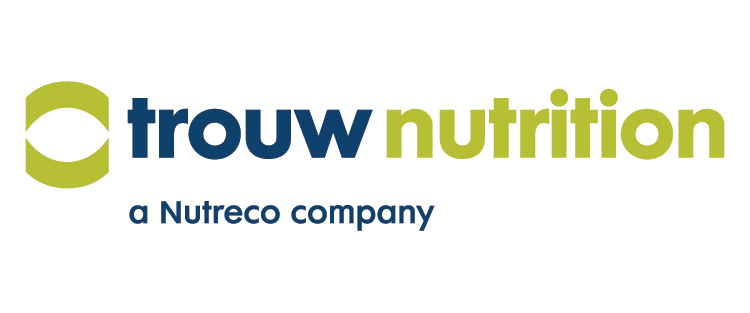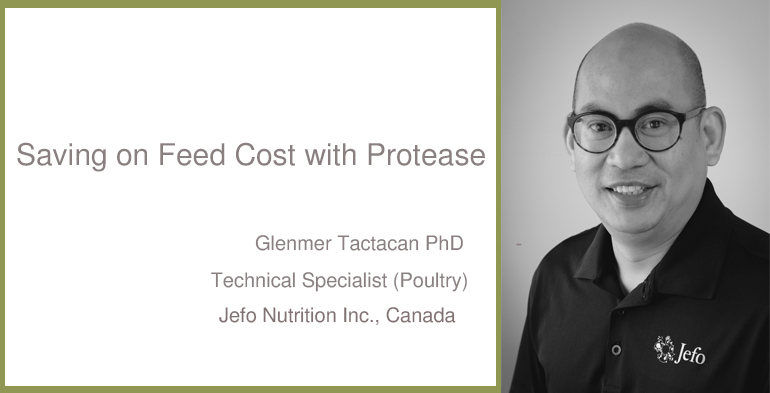
Glenmer Tactacan PhD, Technical Specialist (Poultry), Jefo Nutrition Inc., Canada:As the cost of feed generally represents between 60 to 70% of the total investment of animal production, any means of reducing its costs or improving animal performance should result in benefits and should be considered by the industry.
Protein can be one of the most expensive livestock components, and it can rapidly increase the overall feed cost. While the demand for poultry meat grows, price fluctuation of traditional protein sources such as soybean meal can have a major impact on the feed quality and the economic bottom line. To ensure optimal production and commercial sustainability, producers must look for nutritional strategies to use protein sources as efficiently as possible. Fortunately, the use of enzymes such as protease to unlock the nutritional potential of ingredients is now available and represents a valuable strategy with efficacy proven by numerous studies.
Proteases are enzymes produced naturally by the animal’s GIT that allow the digestion of proteins. Proteases as additives should break down feed proteins in smaller fragments more than physiologically possible by the animal’s natural enzymes, thus delivering more available amino acids for absorption in the small intestine. These exogenous enzymes help broilers to reach their optimal performance, gaining weight faster and using less expensive protein sources such as soy, or replacing them with less traditional and lower priced feedstuffs. In a study conducted in Kasetsart University in Thailand on commercial broilers, the supplementation of a multi-component protease on either a soybean meal-based or a rapeseed meal/meat and bone meal-based diet resulted to a significantly lower feed cost per metric ton of body weight gain (Figure 1). Both diets were reformulated to account for the nutrient uplift accorded by the protease addition.
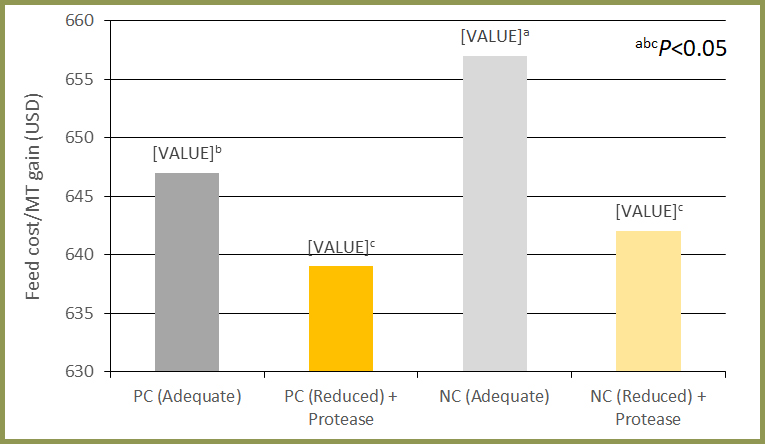
Figure 1. Feed cost per metric ton gain of broiler chickens fed with adequate or reduced diets reformulated with either traditional (soybean meal) or alternative protein sources (rapeseed meal and meat and bone meal) and supplemented with or without a multi-component protease.
Another advantage of protease is the improvement of gut health by reducing undigested protein residues. When fragments of proteins from feed raw materials are not fully digested by the animal’s natural enzymes, undigested material may affect negatively the intestinal health of broilers as they serve as nutrients for potentially pathogenic microorganisms from the microbiota. Also, poor feed efficiency increases poultry manure, leading to higher levels of ammonia, nitrate and nitrous oxide, as well as poor litter condition. Studies conducted in Nong Lam University in Vietnam and in Chung-Ang University in South Korea, demonstrated a significant reduction in E. coli fecal count and fecal nitrogen excretion, respectively, in poultry diets that were supplemented with a protease enzyme (Figure 2 and 3). These highlight the benefits of a protease in improving gut health while also ameliorating the negative impact of poultry production on environmental pollution.
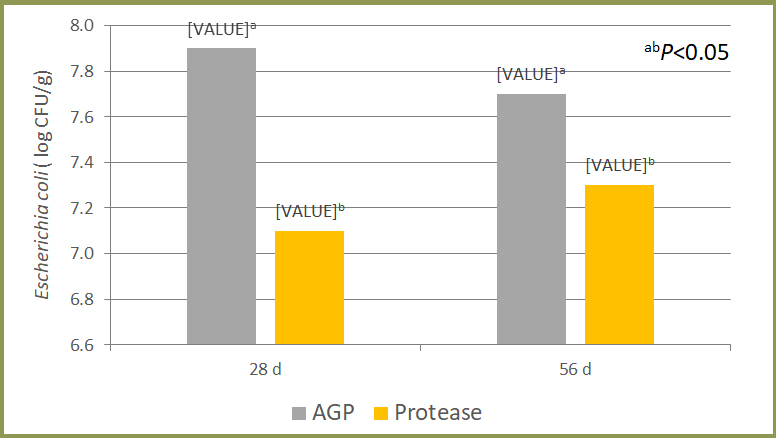
Figure 2. Escherichia coli count in the feces of native broilers fed diets supplemented with either a combination of antibiotic growth promoters (AGP; colistin and BMD) or a multi-component protease at 28 and 56 d of age.
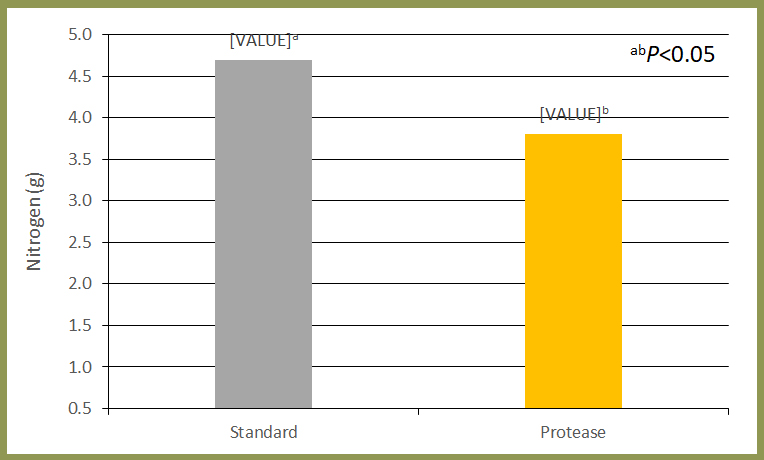
Figure 3. Fecal nitrogen excretion of laying hens fed diets with or without a multi-component protease.
Selecting the right enzyme
To make an informed decision on which exogenous enzyme to use, producers must take into account the raw materials and types of feed, as they are substrate specific. A basic knowledge of the substrate chemical structure is essential to select the proper enzyme for the targeted effect. Matching an enzyme activity with a substrate does not guarantee efficacy. Each enzyme, even within the same family, depending on its source, structure and affinity, is unique and can play a role in other physiological parameters as shown in gastrointestinal tract integrity or generation of prebiotics, for instance.
Multi-component proteases, such as the one produced by Jefo Nutrition, in addition to complementing natural endogenous proteases, are not affected by anti-nutritional components found in ingredients such as soybean meal. Instead, they can still work and minimize the undesirable effects of such anti-nutritional factors when natural enzymes are inhibited. Finally, producers should not neglect the possibility of using a combination of enzymes such as protease and xylanase as they can provide better results due to their synergistic action.









